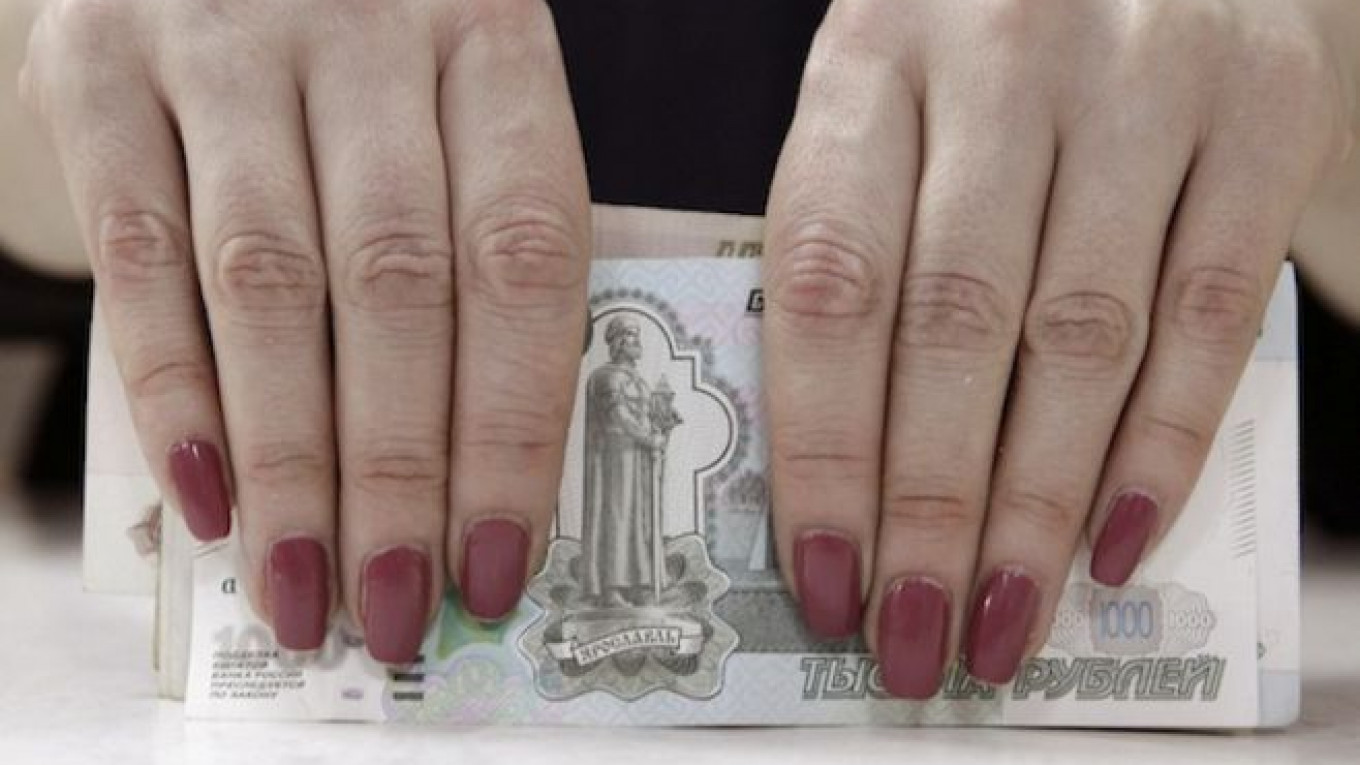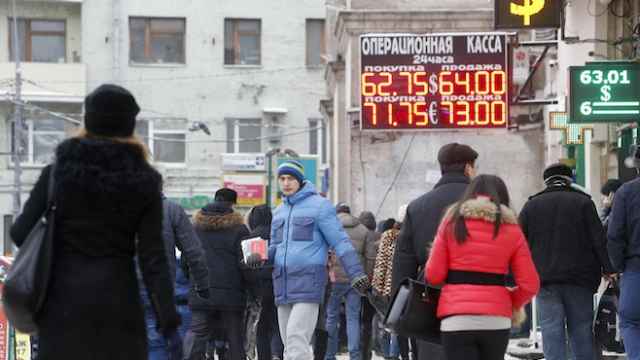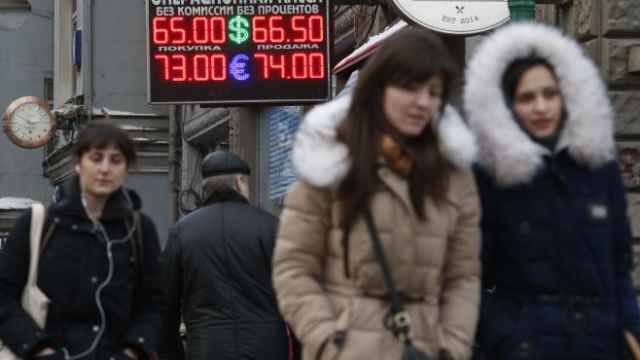Russian financial markets saw a muted reaction on Tuesday after ratings agency S&P downgraded the country's sovereign credit rating to “junk,” with the ruble and Moscow-listed shares strengthening.
Although the ruble fell sharply on Monday and bond yields rose, analysts said that the immediate implications of the downgrade were limited, as the move was largely priced in and other major agencies still rate Russia above junk.
Bond yields on Russian Eurobonds did edge higher on Tuesday, however, as did the cost of insuring exposure to Russian debt.
At 7:25 p.m., the ruble was around 2.5 percent stronger against the dollar at 67 and gained 1.6 percent to trade at 76 versus the euro.
The ruble had fallen 6 percent on Monday, with around half the loss following S&P's downgrade in the evening.
Russian assets had already fallen sharply before the decision because of renewed fighting in Ukraine and the threat of fresh Western sanctions against Russia.
S&P cut Russia's rating from BBB- to BB+, citing Russia's weakened economic growth prospects, hit by low oil prices and Western sanctions over the Ukraine crisis.
Two other major ratings agencies, Moody's and Fitch, are yet to downgrade Russia to below investment grade.
"If the other agencies also cut Russia to junk status in the coming months, a move that is now also widely anticipated, then we may see some selling pressure from investors prohibited from owning sub-investment grade debt," said Chris Weafer, senior partner at Macro-Advisory consultancy in Moscow.
"But ownership of Russian assets by such low-risk investors is quite small now as most sold out of Russia last year as the Ukraine crisis escalated, the economy slowed and the oil price fell," he said.
President Vladimir Putin's spokesman told Reuters that ratings decisions were "politically motivated" and bore no relation to economic realities.
The Central Bank's first deputy governor, meanwhile, said the downgrade had already been factored into many decisions.
Ruble Supported
The ruble was seen supported by exporters selling foreign currency, which they have been doing at regular intervals after the government pressured them to do so to help the Russian currency.
Russian share indexes were mixed, largely swayed by the ruble moves. The dollar-denominated RTS index closed up 0.3 percent at 783.5 points, while the ruble-based MICEX was 1.9 percent higher at 1,674 points.
Unlike the foreign exchange market, Russia's stock exchange was closed on Monday evening, so the impact of S&P's decision was priced on Tuesday.
Bond yields on Russia's benchmark 2030 Eurobond rose by 11 basis points to 7.40 percent on Tuesday, after rising almost 40 basis points on Monday.
Russian dollar bond yield spreads over safe-haven U.S. Treasuries widened by 13 basis points to the highest level since mid-December.
The downgrade leaves Russia in “junk” territory for the first time in a decade, which could push up its borrowing costs as many mainstream investment and pension funds have rules preventing them from buying anything not classed as investment grade.
One positive was that S&P maintained Russia's investment grade rating on local currency sovereign bonds, in which government debt is mostly issued, Neil Shearing at Capital Economics said in a note.
Jochen Wermuth, chief investment officer at Wermuth Asset Management, however, said the long-term effects for Russia could be more serious.
"While the 'smart money' may have anticipated a downgrade, there will be a difference like day and night between being an investment grade country or not for debt and equity markets."
A Message from The Moscow Times:
Dear readers,
We are facing unprecedented challenges. Russia's Prosecutor General's Office has designated The Moscow Times as an "undesirable" organization, criminalizing our work and putting our staff at risk of prosecution. This follows our earlier unjust labeling as a "foreign agent."
These actions are direct attempts to silence independent journalism in Russia. The authorities claim our work "discredits the decisions of the Russian leadership." We see things differently: we strive to provide accurate, unbiased reporting on Russia.
We, the journalists of The Moscow Times, refuse to be silenced. But to continue our work, we need your help.
Your support, no matter how small, makes a world of difference. If you can, please support us monthly starting from just $2. It's quick to set up, and every contribution makes a significant impact.
By supporting The Moscow Times, you're defending open, independent journalism in the face of repression. Thank you for standing with us.
Remind me later.






